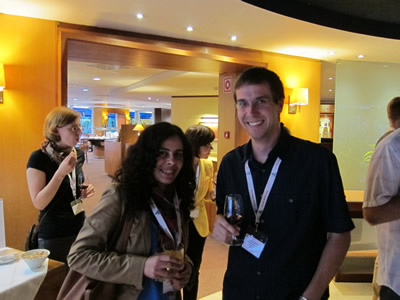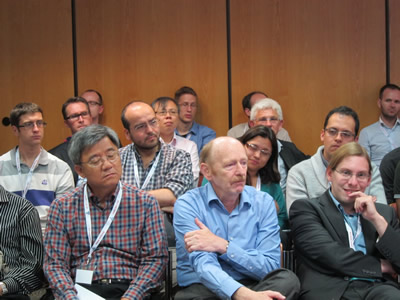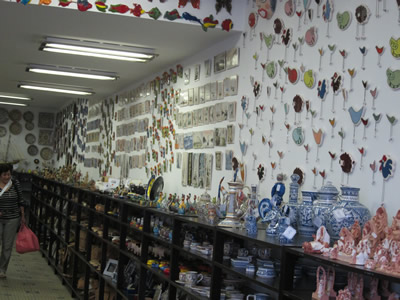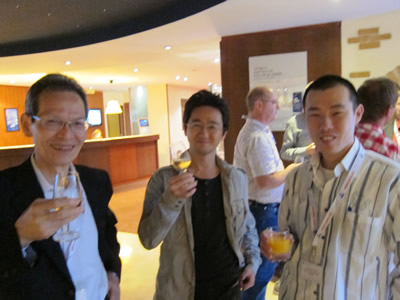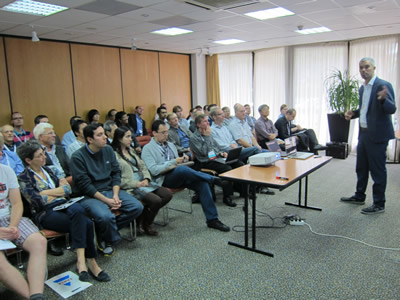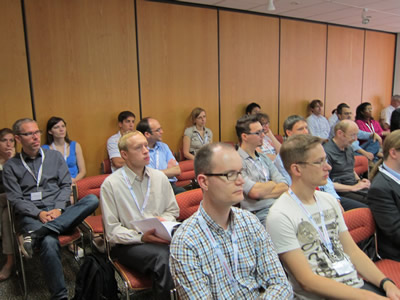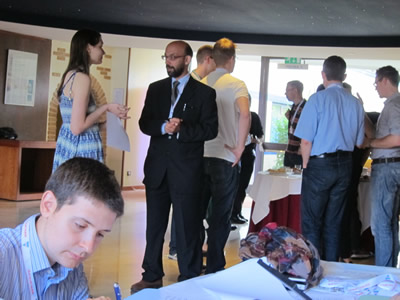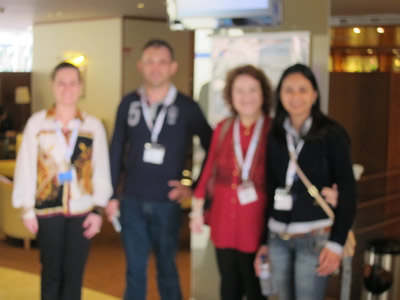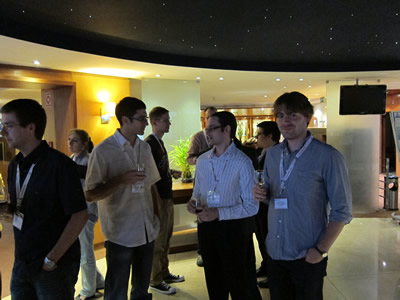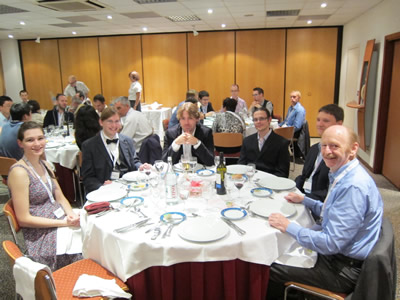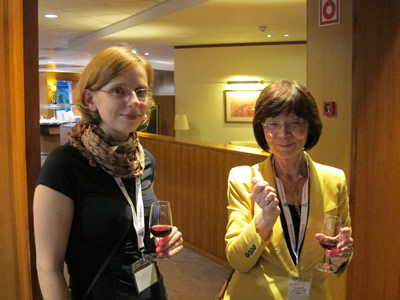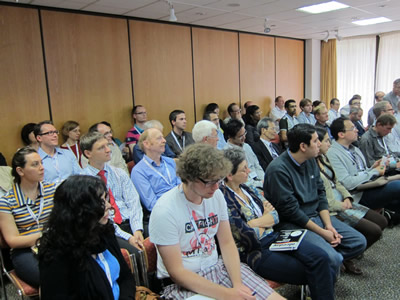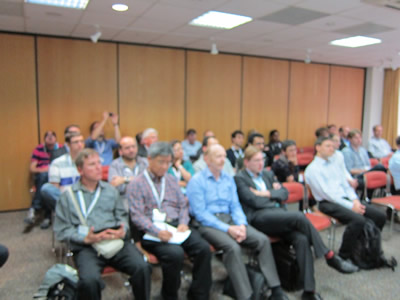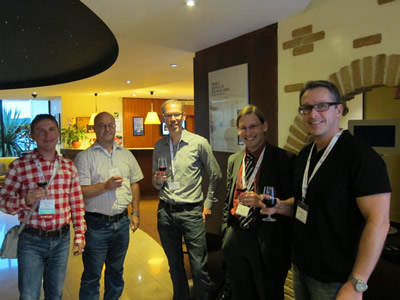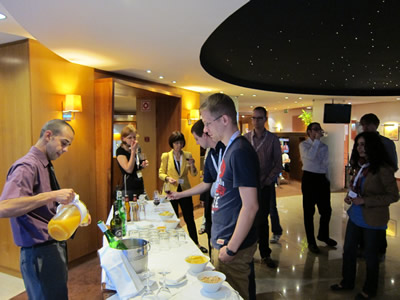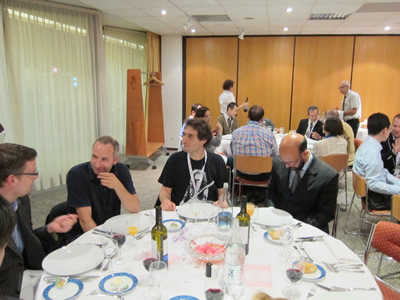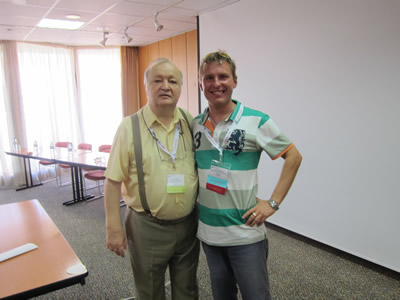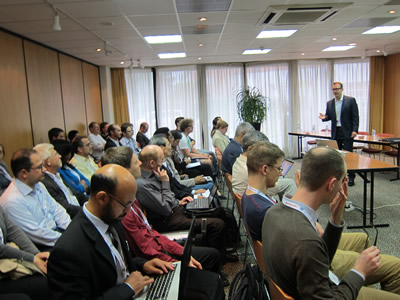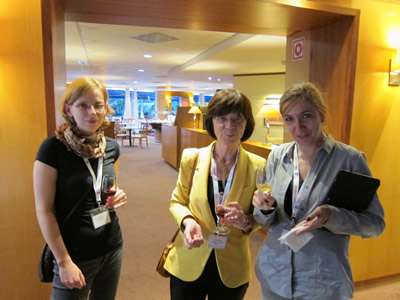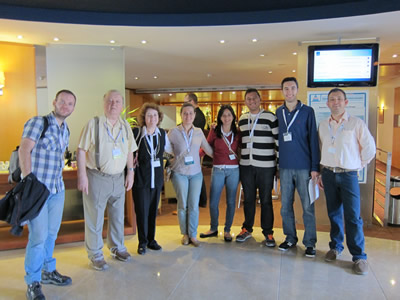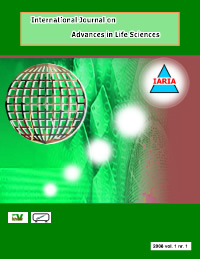HEALTHINFO 2020 - The Fifth International Conference on Informatics and Assistive Technologies for Health-Care, Medical Support and Wellbeing
October 18, 2020 - October 22, 2020
HEALTHINFO 2020: Call for Papers
The progress in society and technology regarding the application of systems approaches information and data processing principles, modeling and information technology, computation and communications solutions led to a substantial improvement of problems in assistive healthcare, public health, and the everyday wellbeing. While achievements are tangible, open issues related to global acceptance, costs models, personalized services, record privacy, and real-time medical actions for citizens’ wellbeing are still under scrutiny.
HEALTHINFO 2020, The Fifth International Conference on Informatics and Assistive Technologies for Healthcare, Medical Support and Wellbeing tackles particular aspects belonging to health informatics systems, health information, health informatics data, health informatics technologies, clinical practice and training, and wellbeing informatics in terms of existing and needed solutions.
We solicit both academic, research, and industrial contributions. We welcome technical papers presenting research and practical results, position papers addressing the pros and cons of specific proposals, such as those being discussed in the standard fora or in industry consortia, survey papers addressing the key problems and solutions on any of the above topics short papers on work in progress, and panel proposals.
Industrial presentations are not subject to the format and content constraints of regular submissions. We expect short and long presentations that express industrial position and status.
Tutorials on specific related topics and panels on challenging areas are encouraged.
The topics suggested by the conference can be discussed in term of concepts, state of the art, research, standards, implementations, running experiments, applications, and industrial case studies. Authors are invited to submit complete unpublished papers, which are not under review in any other conference or journal in the following, but not limited to, topic areas.
All topics and submission formats are open to both research and industry contributions.
HEALTHINFO 2020 conference tracks:
Trends and achievements
Globalizing health informatics; eHealth Web science; Nursing-oriented healthinfo; Home monitoring on chronic diseases; Big Data and Smart Health; eHealth and education via visual analytics; Health and medication-related services; Resource and demands for health-oriented systems; Health systems in critical situations (heart failure, kidney blockage, mental health, etc.); health services and chronic diseases; User satisfaction with health applications and services; Patient acceptance of health systems; Health and pharmaceutical systems; eHealth and nurse practitioners; eHealth Apps (1st aid, locating a hospital, etc.); Health and online-prescribing systems; Online eHealth communities; Context-aware eHealth systems; eHealth portals; Usability of health data to benefit patient and public health safety, privacy and security; Integrating heterogeneous clinical data into central data warehouses; Patient safety at transitions of care; Patient safety in critical care units; Health care processes in the intensive care units; Nursing quality indicator systems; Patient safety event reporting systems; Patient online access to their electronic health records; Patient safety risks associated with electronic health records; Patient generated clinical data and associated implications for electronic health records; Electronic dental records systems; Model-driven for standardized electronic health records; Semantic interoperable electronic patient records; Ontological knowledge base for managing patient safety events
New Approaches and Dedicated Informatics
Machine learning and neuronal networks for detections; Deep transfer learning; Deep learning prediction; Semantic segmentation; Digital distortions; Computer tools for tumor detections; MRI with/without segmentation; Coherence tomographies; Anomaly detection techniques; Breast informatics; Brain informatics; Heart informatics; Lung informatics; Pneumonia detection; Abdomen informatics; Liver informatics; Kidney informatics; Colon informatics; Vascular informatics; Eyes informatics; Oncology informatics; Bone informatics; Skin informatics; Thorax informatics; Special diseases (Dementia, Parkinson, Alzeimer, Epilepsy) informatics; Strokes; Paralysis; Biomarkers; Radiomics
Rehabilitation robotics
Wearable robotic; Balance assessment robots; Robotically-assisted joints rehabilitation; Robotic hands; Post-traumatic robotics; Assistive robots for motion training; Pneumatic robotic assistance; Robot-assisted drinking and eating; Human-assistive robotic platforms; Exoskeleton-assisted walking; Massaging robots; Model predictive controllers; Cognitve interactions with assistive robots; Patient-assitance robotic-centered design; Accuracy and safety; Caregivers interaction with robotics
Health Informatics Systems
Architectures and Frameworks for Health Informatics Systems; Medical Informatics and Medical Records; Knowledge Bases and Health Data Mining; Data Mining and Bioinformatics; Ambient Assisted Living Systems; Enhanced Living Environments; Disease Surveillance and Patient Monitoring Systems; Prevention and Detection Systems; Personalized Apps for Healthcare and Wellbeing; Population Health and Public Health Informatics; Telemedicine and Mobile Telemedicine; Decision Support Systems in Healthcare; Computer-aided Detection and Diagnosis; Analysis and Evaluation of Healthcare Systems
Health Information
Health Information Technologies; Evidence-based Medical Practice; Medical Imaging Informatics; Electronic health/medical Record Applications; Personal Health Record Applications; Healthcare Data Warehouses; Health Information Modeling and sharing; Data Computational Models and Telemedicine Treatment Effects; Biomedical/Health Database Integration and Management; Health Information Retrieval and Extraction
Health Informatics Data
Health Services Data Analytics; Databases and Integration of Biomedical Data; Bioinformatics and Healthcare Infrastructure; Integrative Analysis of Biological and Clinical Data; HIPAA Compliance Data Mining Approaches; Pharmacogenomics Data Mining; Epidemic Intelligence; Drug Information Systems; Health Data Storage and Management; Privacy, Authentication, Trust, Security in Data Processing; Medical Image Data Mining and Processing; Computational Genetics, Genomics and Proteomics; Population, Evolution, and Comparative Genomics
Health Informatics Technologies
Interoperability and Scalability of Systems and Platforms; IT Standards and Profiles for Interoperability; Software and Devices for Healthcare; Programming Paradigms and Tools for Health Applications; Human-computer Interaction and Usability in Healthcare; Technologies for Dynamic Data Integration (ontologies, noSQL, RDF, SPARQL, etc.); Cross-Computational Methods; Medical Cyber Physical Systems; Mobile Health and Sensor Applications; Internet of Things for Healthcare; RFID and Sensor-enabled Healthcare Technologies; Intelligent Technologies for Healthcare (Smart Homes, Cloud-based, etc.); Computational Drug Discovery; On/In-Body Medical Sensors Communications; Ubiquitous Health Applications; Health Portals and Big Data Visualization; Food Control and Recommendation Systems
Clinical Practice and Training
Medical Practice-driven Models and Requirements; Patient-centered Health and Experience Studies; Mobile Health Consultation; Remote Monitoring of Patients with Chronic Diseases; Dietary Assessment via Smartphones and Wearable Devices; Children Healthcare Systems; Nursing Informatics; Clinical Workflow and Human Factors; Health Social Media Analytics; Treatment Facilities; Clinical Informatics; Evidence-based Medicine; Clinical Safety; Clinical Epigenetics; Clinical Data and Knowledge Management; Risk and Responsibility Management in Healthcare; Regional Cooperation for Healthcare; Lessons Learned
Wellbeing Informatics
Physical Therapy Instrumentation; Assistive and Sentient Environments; User-adaptive Gerontechnologies; Telehealth and Telemedicine Services; Mobile Technology for Wellbeing; Mobility and Rehabilitation Technologies; Household Accident Detection ad Reaction; Personalized Ambient Adaptation; Communication Devices for the Elderly; Social Networks for the Elderly; Lifelong Learning for Mental Healthcare; Assistive Technologies and Devices; Medication and Nutrition Control Services; Social-care Robots and Agents fro the Elderly; Entertainment Technologies for the Elderly; Fitness and Sports for the Elderly
Deadlines:
Submission | Jul 22, 2020 |
Notification | Aug 13, 2020 |
Registration | Aug 25, 2020 |
Camera ready | Sep 03, 2020 |
Deadlines differ for special tracks. Please consult the conference home page for special tracks Call for Papers (if any).
INSTRUCTION FOR THE AUTHORS
Authors of selected papers will be invited to submit extended versions to one of the IARIA Journals.
Publisher: XPS (Xpert Publishing Services)
Archived: ThinkMindTM Digital Library (free access)
Prints available at Curran Associates, Inc.
How to submit to appropriate indexes.
Only .pdf or .doc files will be accepted for paper submission. All received submissions will be acknowledged via an automated system.
Contribution types
- regular papers [in the proceedings, digital library]
- short papers (work in progress) [in the proceedings, digital library]
- ideas: two pages [in the proceedings, digital library]
- extended abstracts: two pages [in the proceedings, digital library]
- posters: two pages [in the proceedings, digital library]
- posters: slide only [slide-deck posted on www.iaria.org]
- presentations: slide only [slide-deck posted on www.iaria.org]
- demos: two pages [posted on www.iaria.org]
FORMATS
Only .pdf or .doc files will be accepted for paper submission. All received submissions will be acknowledged via an automated system.
Final author manuscripts will be 8.5" x 11", not exceeding 6 pages; max 4 extra pages allowed at additional cost.
Helpful information for paper formatting for MS Word can be found here.
There is a community provided LaTeX template: the CTAN package iaria (with full IARIA formatting rules, including IARIA citation style, but for providing citation style it is tightly bound to pdflatex+biblatex+biber). In addition, there is also iaria-lite (not bound to pdflatex+biblatex+biber, but compatible with any TeX stack; thus, it cannot provide the IARIA citation formattings, but only the titlepage and content-related IARIA formatting rules). Based on the iaria package, there is a minimal working example as Overleaf template. When you are using the LaTeX templates, please still adhere to the additional editorial rules.
Slides-based contributions can use the corporate/university format and style.
Your paper should also comply with the additional editorial rules.
Once you receive the notification of contribution acceptance, you will be provided by the publisher an online author kit with all the steps an author needs to follow to submit the final version. The author kits URL will be included in the letter of acceptance.
We would recommend that you should not use too many extra pages, even if you can afford the extra fees. No more than 2 contributions per event are recommended, as each contribution must be separately registered and paid for. At least one author of each accepted paper must register to ensure that the paper will be included in the conference proceedings and in the digital library, or posted on the www.iaria.org (for slide-based contributions).
CONTRIBUTION TYPE
Regular Papers (up to 6-10 page article -6 pages covered the by regular registration; max 4 extra pages allowed at additional cost- ) (oral presentation)
These contributions could be academic or industrial research, survey, white, implementation-oriented, architecture-oriented, white papers, etc. They will be included in the proceedings, posted in the free-access ThinkMind digital library and sent for indexing. Please submit the contributions following the instructions for the regular submissions using the "Submit a Paper" button and selecting the appropriate contribution type. 12-14 presentation slides are suggested.
Short papers (work in progress) (up to 4 pages long) (oral presentation)
Work-in-progress contributions are welcome. These contributions represent partial achievements of longer-term projects. They could be academic or industrial research, survey, white, implementation-oriented, architecture-oriented, white papers, etc. Please submit the contributions following the instructions for the regular submissions using the "Submit a Paper" button and selecting the contribution type as work in progress. Contributors must follow the conference deadlines, describing early research and novel skeleton ideas in the areas of the conference topics. The work will be published in the conference proceedings, posted in the free-access ThinkMind digital library and sent for indexing. For more details, see the Work in Progress explanation page. 12-14 presentation slides are suggested.
Ideas contributions (2 pages long) (oral presentation)
This category is dedicated to new ideas in their very early stage. Idea contributions are expression of yet to be developed approaches, with pros/cons, not yet consolidated. Ideas contributions are intended for a debate and audience feedback. Please submit the contributions following the instructions for the regular submissions using the "Submit a Paper" button and selecting the contribution type as Idea. Contributors must follow the conference deadlines, describing early research and novel skeleton ideas in the areas of the conference topics. The work will be published in the conference proceedings, posted in the free-access ThinkMind digital library and sent for indexing. For more details, see the Ideas explanation page. 12-14 presentation slides are suggested.
Extended abstracts (2 pages long) (oral presentation)
Extended abstracts summarize a long potential publication with noticeable results. It is intended for sharing yet to be written, or further on intended for a journal publication. Please submit the contributions following the instructions for the regular submissions using the "Submit a Paper" button and selecting the contribution type as Extended abstract. Contributors must follow the conference deadlines, describing early research and novel skeleton ideas in the areas of the conference topics. The work will be published in the conference proceedings, posted in the free-access ThinkMind digital library and sent for indexing. 12-14 presentation slides are suggested.
Posters (paper-based, two pages long) (oral presentation)
Posters are intended for ongoing research projects, concrete realizations, or industrial applications/projects presentations. The poster may be presented during sessions reserved for posters, or mixed with presentation of articles of similar topic. A two-page paper summarizes a presentation intended to be a POSTER. This allows an author to summarize a series of results and expose them via a big number of figures, graphics and tables. Please submit the contributions following the instructions for the regular submissions using the "Submit a Paper" button and selecting the contribution type as Poster Two Pages. Contributors must follow the conference deadlines, describing early research and novel skeleton ideas in the areas of the conference topics. The work will be published in the conference proceedings, posted in the free-access ThinkMind digital library and sent for indexing. 8-10 presentation slides are suggested. Also a big Poster is suitable, used for live discussions with the attendees, in addition to the oral presentation.
Posters (slide-based, only) (oral presentation)
Posters are intended for ongoing research projects, concrete realizations, or industrial applications/projects presentations. The poster may be presented during sessions reserved for posters, or mixed with presentation of articles of similar topic. The slides must have comprehensive comments. This type of contribution only requires a 8-10 slide-deck. Please submit the contributions following the instructions for the regular submissions using the "Submit a Paper" button and selecting the contribution type as Poster (slide-only). The slide-deck will be posted, post-event, on www.iaria.org.
8-10 presentation slides are suggested. Also a big Poster is suitable, used for live discussions with the attendees, additionally to the oral presentation.
Presentations (slide-based, only) (oral presentation)
These contributions represent technical marketing/industrial/business/positioning presentations. This type of contribution only requires a 12-14 slide-deck. Please submit the contributions following the submission instructions by using the "Submit a Paper" button and selecting the contribution type as Presentation (slide-only). The slide-deck will be posted, post-event, on www.iaria.org.
12-14 presentation slides are suggested.
Demos (two pages) [posted on www.iaria.org]
Demos represent special contributions where a tool, an implementation of an application, or a freshly implemented system is presented in its alfa/beta version. It might also be intended for thsoe new application to gather the attendee opinion. A two-page summary for a demo is intended to be. It would be scheduled in special time spots, to ensure a maximum attendance from the participants. Please submit the contributions following the submission instructions by using the "Submit a Paper" button and selecting the contribution type as Demos. The Demos paper will be posted, post-event, on www.iaria.org.
Tutorial proposals
Tutorials provide overviews of current high interest topics. Proposals should be for 2-3 hour long. Proposals must contain the title, the summary of the content, and the biography of the presenter(s). The tutorial slide decks will be posted on the IARIA site.
Please send your proposals to tutorial proposal
Panel proposals
The organizers encourage scientists and industry leaders to organize dedicated panels dealing with controversial and challenging topics and paradigms. Panel moderators are asked to identify their guests and manage that their appropriate talk supports timely reach our deadlines. Moderators must specifically submit an official proposal, indicating their background, panelist names, their affiliation, the topic of the panel, as well as short biographies. The panel slide deck will be posted on the IARIA site.
Please send your proposals to panel proposal
